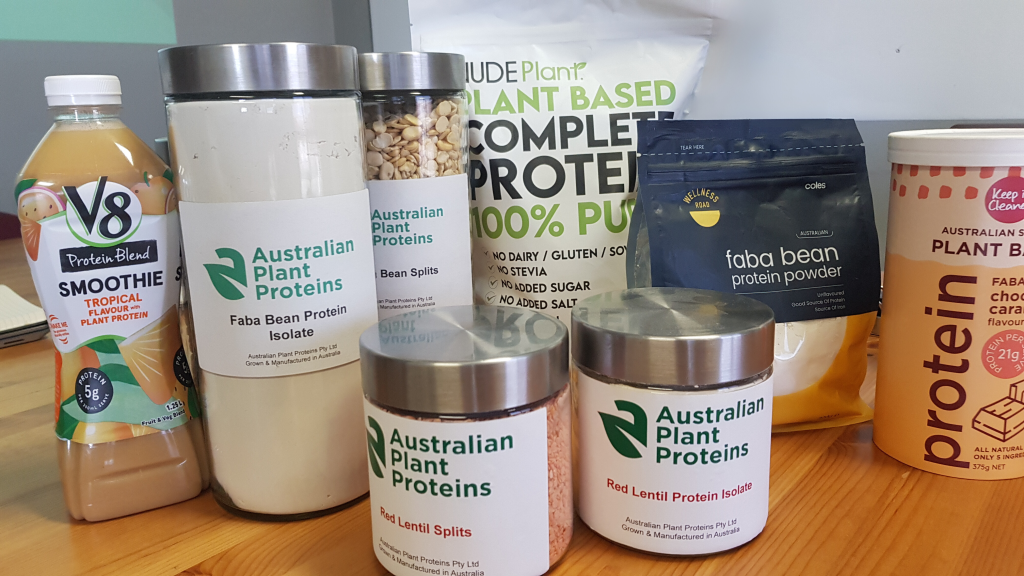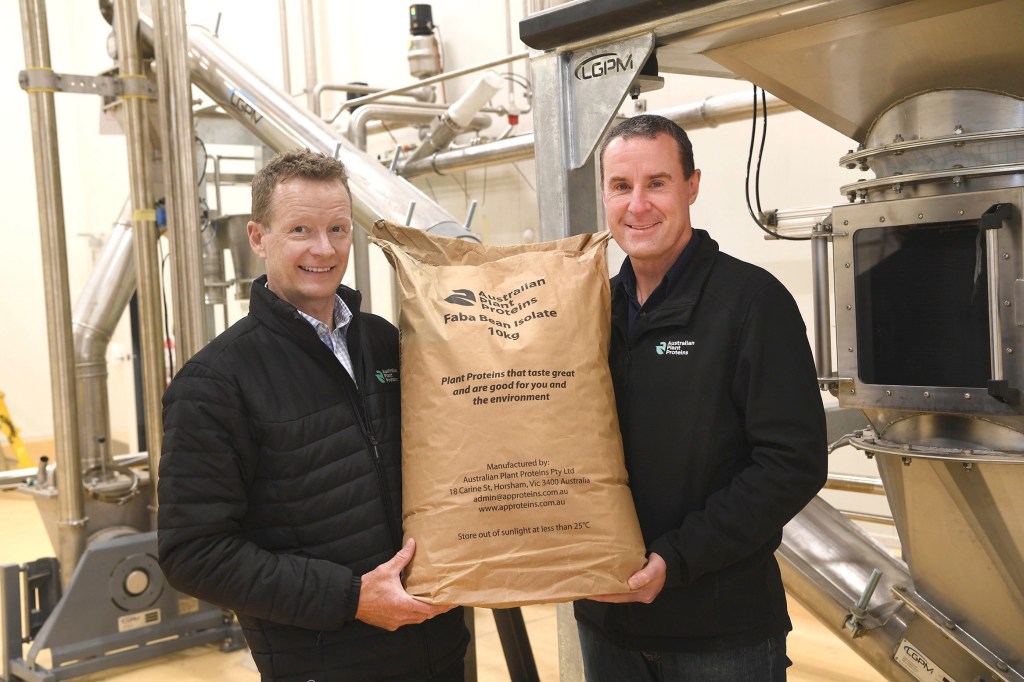Horsham-based isolates manufacturer Australian Plant Proteins (APP) went into voluntary administration at the end of June.
According to Grain Central, Melbourne accounting firm Romanis Cant has been appointed as administrator for APP and is in the process of restructuring the business and finding a suitable buyer or investor.
Founded in 2016 by Brendan McKeegan and Phil McFarlane, APP currently employs over 30 people at two locations in Victoria, a research-and-development site near Melbourne, and a commercial fractionation facility at Horsham, a major producer of plant protein isolates.
The largest of three commercial-scale plant-protein fractionation facilities in Australia, APP is the only manufacturer of high quality Australian grown faba bean and pulse protein isolates, which it supplies to local and international food manufacturers. Isolates are used in retail products such as meat and dairy alternatives, baked goods, snack and convenience foods, and pet food.

According to alt protein think tank Food Frontier, protein isolates (which contain more than 80% protein) are essential for future food security amid a rapidly increasing global population.
APP is the latest Australian plant-based protein to go into voluntary administration, with Proform Food Group – manufacturer of plant-based protein brand MEET – entering the process earlier this year.
APP had not indicated any financial challenges ahead of the announcement – the company received the Hive Awards Best Ingredient Award presented by Food & Drink Business this past May.
How to recapture Australia’s status as a plant protein leader
Food Frontier CEO Dr Simon Eassom weighed in on APP’s entering voluntary administration, stating that it should not be seen as a failure of an individual company but rather as, “a warning that building a long-term sustainable industry takes time, ongoing investment, and commitment from government.”
Dr Eassom highlighted Canada’s co-investment of $190m in its plant protein sector in the time since APP was founded in 2016 and ambitions for the industry to reach $27.5b by 2035.
“Sadly, the potential closure of Australian Plant Proteins pushes Australia further behind countries such as Canada and China and resigns Australian manufacturers to relying on the importation of soybean concentrates and protein ingredients, often of variable quality and suitability,” Dr Eassom said.

As noted in a recent global policy report from the Good Food Institute (GFI), in 2022, Australia’s plant-based protein sector was positioned to be among the best-supported in the world, second only to Canada. This was primarily due to the federal government’s announcement of an $113M grant for the construction of three state-of-the-art pulse protein facilities, a joint venture between APP and Australia’s largest meat company.
However, in 2023, the new government rescinded this grant and seven other projects, stating that the decision was due to a long delay between the announcement and enactment of the grants, leading the projects to lose their eligibility. GFI said that no specific information on the APP project was given, and the future of the collaboration and grant was unclear at the time of the report’s publication.
What’s more, a bid to create a cooperative research centre (CRC) for the alt proteins industry was passed on at the end of 2023 by the Federal Government for the third consecutive year. Australia’s overall national spending in R&D also dropped again in 2023, continuing a 14-year decline.
Dr Eassom urged the Australian government to boost investment in the domestic plant protein sector, lest the country risk becoming reliant on imports rather than a leader in innovative proteins.
“If processing facilities aren’t supported, Australia will miss an enormous opportunity to enhance its domestic supply of high-quality protein ingredients for the food manufacturing sector,” Dr Eassom said. “It will prevent significant and necessary R&D into utilising these products to feed large sectors of the community, such as those in aged care facilities, who need food manufactured from high quality, digestible protein at affordable prices.
“This, combined with a lack of manufacturing capabilities such as that provided by APP puts Australia at risk of entrenching our reliance on imports rather than leading as a major exporter of innovative food products. We hope that APP finds a buyer before it’s too late but, really, the support needs to come from government.”

Despite decreasing support for plant proteins from the Federal Government, in 2023, four of Australia’s six state governments stepped up to support farmers and food producers with targeted public investments.
For example, the WA government allocated $3.3 million for the construction of a factory producing oat milk enriched with lupin protein, both from locally-grown crops.
To stay up-to-date on the latest industry headlines, sign up to Future Alternative’s enewsletter.
Posted on:


